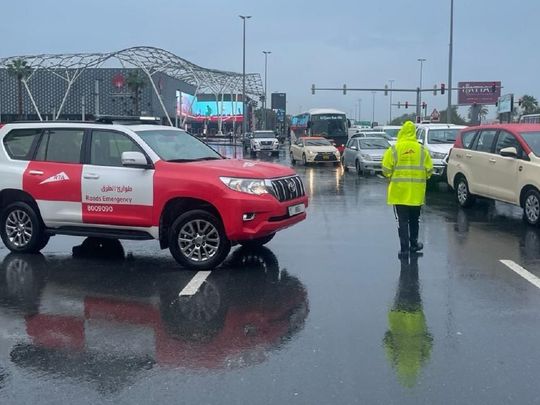
Dubai: Dubai’s emergency response teams demonstrated high levels of preparedness in managing emergency situations caused by adverse weather conditions throughout the emirate.
Dubai authorities deployed a total of 2,300 personnel from across various entities including Dubai Municipality, Roads and Transport Authority (RTA), Dubai Police, the Mohammed Bin Rashid Housing Establishment, and Nakheel to respond to emergencies and mitigate the impact of heavy rains that struck the UAE this weekend.
The teams were equipped with over 700 units of equipment including 250 tankers, 300 rainwater pumps, over 180 emergency vehicles, field survey vehicles, machinery and other heavy equipment, to deal with water-logged conditions.
Dubai Police reported receiving a total of 10,232 calls on Saturday between 06:00 and 15:00 on its emergency and non-emergency hotlines. The emergency hotline 999 accounted for 9,275 of these calls, while the non-emergency hotline 901 received 957 calls.
Public urged to adopt caution
In light of the current weather conditions, Dubai Police has advised the public to adopt caution. They urged the public to call the 999 hotline solely for emergency situations and use the 901 hotline for all other non-emergency purposes.
Dubai Police also advised drivers to steer clear of water-logged areas, valleys and low-lying areas as long as adverse weather conditions continue. They particularly warned the public against entering valleys to ensure safety of lives and property.
Comprehensive plan
Dubai authorities have devised a comprehensive plan to ensure the safety and security of the public, and address any issues that may arise due to the heavy rains.
The field teams' strategy for mitigating the effects of adverse weather leverages historical data and statistics from earlier rainy seasons. Pre-emptive planning and scenario building have enabled them to maintain smooth traffic flows and swiftly address water-logging.








